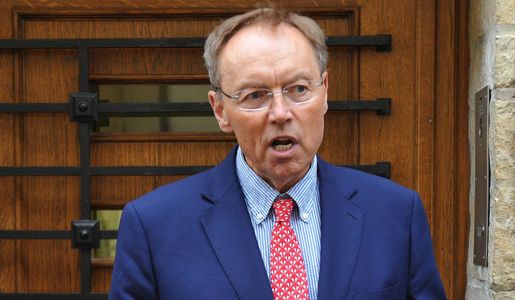Lukes Publishes Article on 100 Years of Czech Provincialism
Igor Lukes, Professor of International Relations and History at the Frederick S. Pardee School of Global Studies at Boston University, published an article on Czech Provincialism in conjunction with the 100 – year anniversary of the founding of Czechoslovakia.
The article, entitled “One Hundred Years of Czech Provincialism,” was published in The New Presence on November 9, 2018.
From the text of the article:
Despite years of Nazi and communist occupation, the Czech Republic is now a member of NATO and its relations with the United States and other allies in the West are strong. It was heartwarming to see General James Mattis observing the Czech Army’s pass-in-review on October 28th. Given the Czech Republic’s geographic location, this is not a small achievement, and it is good to celebrate it.
At the same time, we need to anticipate problems and prepare to face them before they become insurmountable. It is a truism but one worth repeating that friends not only support and sustain each another, they also tell each other the truth, even when it is uncomfortable, inconvenient, or outright painful. This is what I propose to do today. I will argue that the Czech Republic is on the verge of repeating the mistakes that drove its predecessor, interwar Czechoslovakia, toward the collapse in 1938-1939. These mistakes include lack of concern regarding neighbors and allies, submissiveness toward Russia, and unwillingness to help others in need.
Let me start with a few examples from the First Republic. When Czechoslovakia emerged, its supporters (e.g., R. W. Seton-Watson, Henry Wickham Steed, Arnold Toynbee) hoped it would bring to the international scene some of the humanitarian ideals promoted by Thomas Masaryk. The first occasion to test this expectation came at the Paris Peace Conference. Edvard Benes proved to be a tough negotiator. In Bohemia and Moravia he demanded “historical borders,” which included areas with more than 3 million German-speakers, but in Slovakia he insisted on “economically viable” borders, which allowed him to gain significant Hungarian territory. The Czech delegates in Paris were uncompromising when it came to the coal-rich region around Ostrava, which was claimed by both Czechs and Poles.
Igor Lukes writes primarily about Central Europe. His publications deal with the interwar period, the Cold War, and contemporary developments in East Central Europe and Russia. His work has won the support of various other institutions, including Fulbright, Fulbright-Hays, the Woodrow Wilson Center, IREX, and the National Endowment for the Humanities. In 1997 Lukes won the Metcalf Award for Excellence in Teaching at Boston University.
